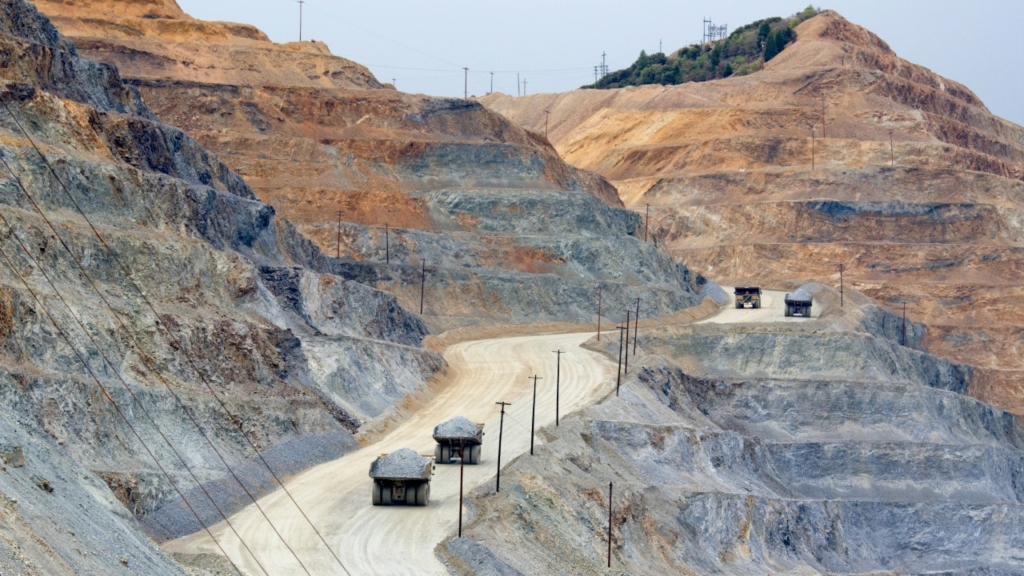Herriman, UTAH – The demand for copper in the United States is projected to double over the next decade, yet the country is not positioned to meet this surge without changes to the regulatory environment surrounding new mine development.
President Donald Trump is moving to address these concerns, having signed an executive order aimed at boosting mineral production in America.
“The United States possesses vast mineral resources that can create jobs, fuel prosperity, and significantly reduce our reliance on foreign nations,” the executive order outlines. “Historically, the U.S. has been the world’s largest producer of valuable minerals, but excessive federal regulations have hindered our mineral production capabilities.”
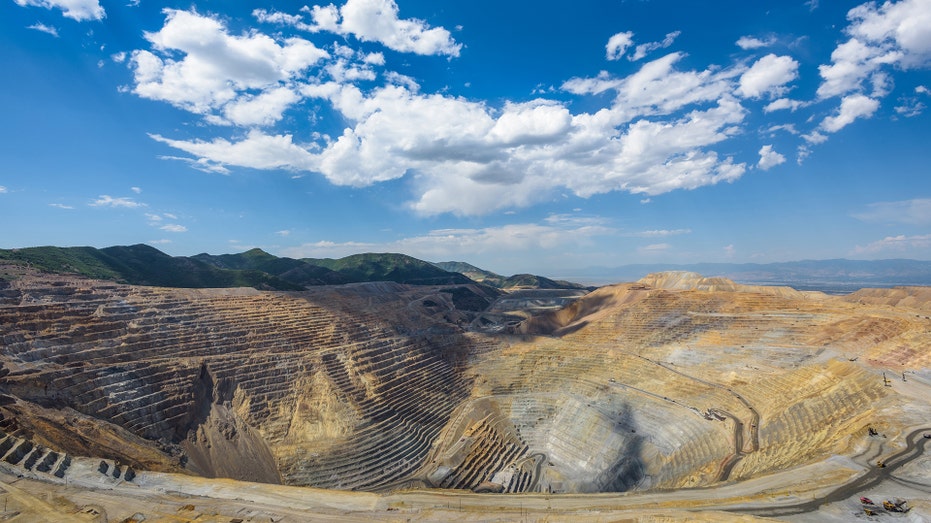
This executive order is expected to prioritize mining projects for essential minerals including copper, uranium, potash, and gold. This initiative is particularly crucial for the copper industry, which finds itself at a disadvantage against countries with less stringent regulations.
AN ETF TO PLAY GOLD, SILVER, COPPER AND EVERYTHING IN BETWEEN
“We need to establish more mines and unlock the resources available right here in the U.S.,” stated Clayton Walker, Chief Operating Officer of Copper at Rio Tinto, the second-largest mining firm globally. “These efforts will support manufacturing, allowing companies to process raw materials into products for consumers. Establishing new mines is critical for rejuvenating domestic manufacturing.”
After 17 years of seeking to establish the Resolution Copper mine in Arizona, Rio Tinto continues to face significant challenges, including land rights and environmental issues, despite the project having the potential to meet 20% of the nation’s copper demand.
“Currently, it takes roughly 29 years to secure a mine permit in the U.S. While I support rigorous standards for mining operations, we need to find ways to expedite this process,” Walker emphasized.
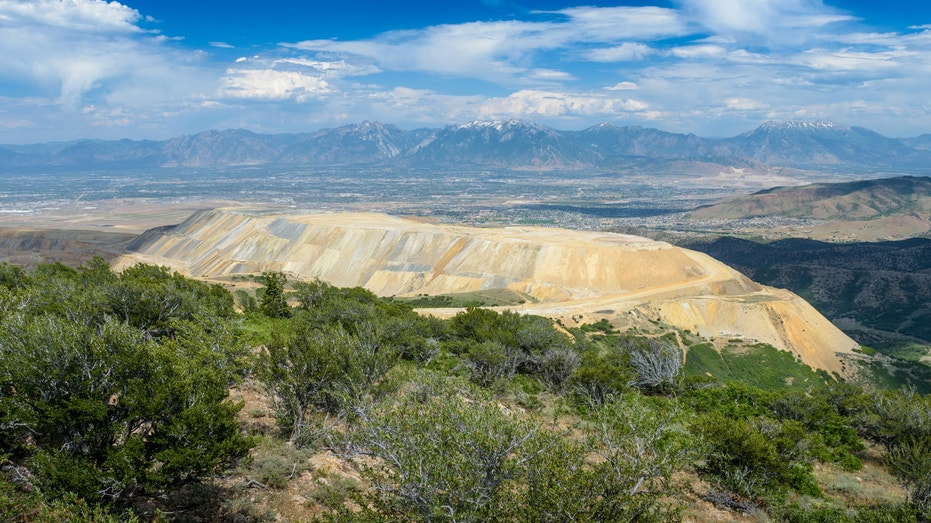
One potential method for streamlining the permitting process could involve adding copper to the critical minerals list, a designation that the Department of Energy uses to identify essential materials that have a high risk of supply chain disruption.
Inclusion of copper on this list would likely reduce production restrictions, allowing Rio Tinto and other operators to more quickly initiate new copper mining ventures within the U.S.
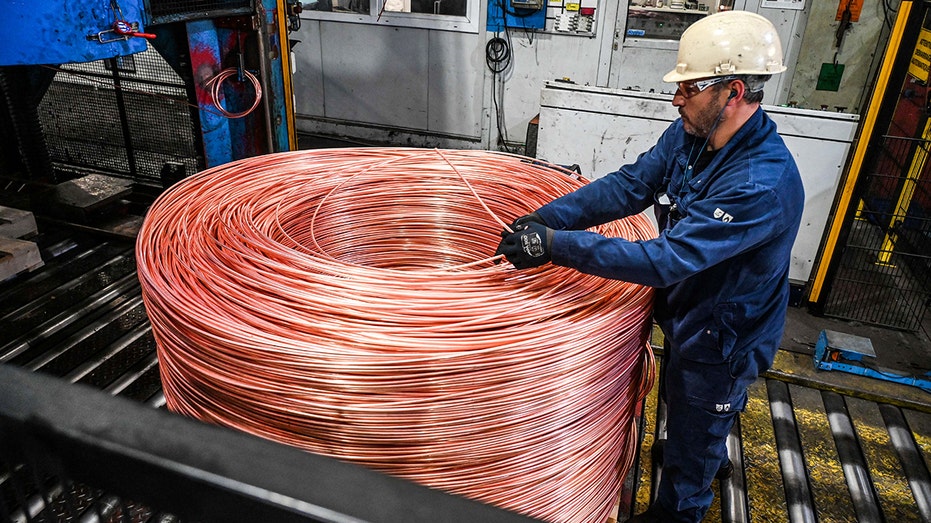
“We should designate copper as a critical mineral. Not having it on that list is counterproductive and restricting access to necessary resources,” stressed Walker, adding that adherence to high environmental standards can be achieved in the U.S. while expediting mining processes.
The Kennecott mine near Salt Lake City is notable for being the world’s largest open-pit mine, stretching 2.5 miles in diameter and plunging about 4,000 feet deep. This facility has produced more copper than any other location globally over its 120 years of operation.
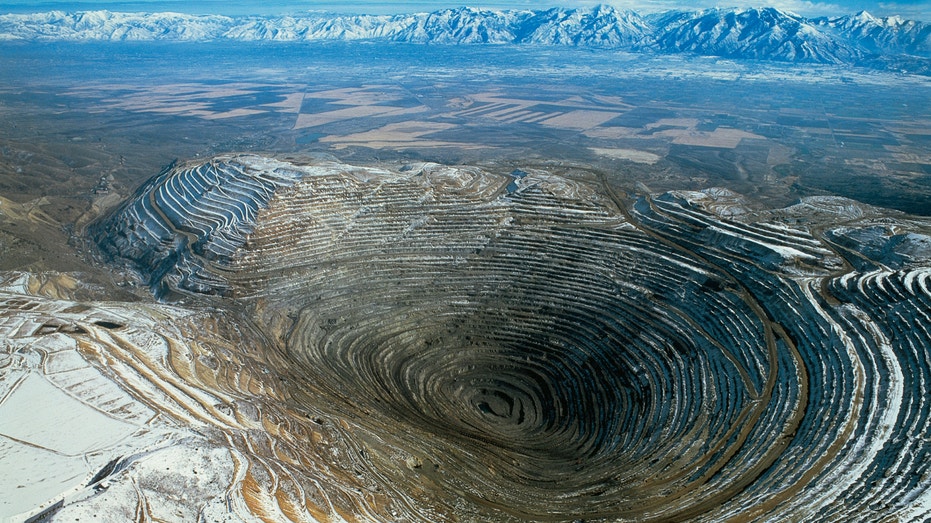
“The history of Kennecott is inspiring. A quarter of the metal utilized by the Allies during World War II originated from this site,” remarked Nate Foster, managing director at Kennecott. “The Allies’ victory in World War II was, in part, thanks to Kennecott’s contributions.”
Kennecott is distinguished as one of only two sites in the U.S. capable of mining, smelting, and refining its own copper. In contrast, China operates over 50 copper smelters, necessitating that a significant portion of U.S.-mined copper is exported for refining abroad.
“Currently, the U.S. is exporting more than 400,000 tons of concentrate annually to other countries for processing before it is shipped back in a different form,” Walker added.
US NEEDS TO ‘LOOK INTERNALLY AS MUCH AS WE’RE LOOKING EXTERNALLY’ FOR CRITICAL MINERALS, CEO SAYS
The Kennecott smelter stands as an engineering feat, recognized as the fourth-tallest chimney in the world, reaching 1,215 feet.
“What makes our smelter remarkable is its status as one of the cleanest worldwide,” Foster noted. “We believe our strategic positioning alongside strong environmental standards enables us to continue investing in America.”
Operating year-round, Kennecott employs 97 oversized haulers, each capable of transporting 360 tons per load, to extract around 120,000 tons of copper ore annually, which constitutes 20% of the country’s copper production.
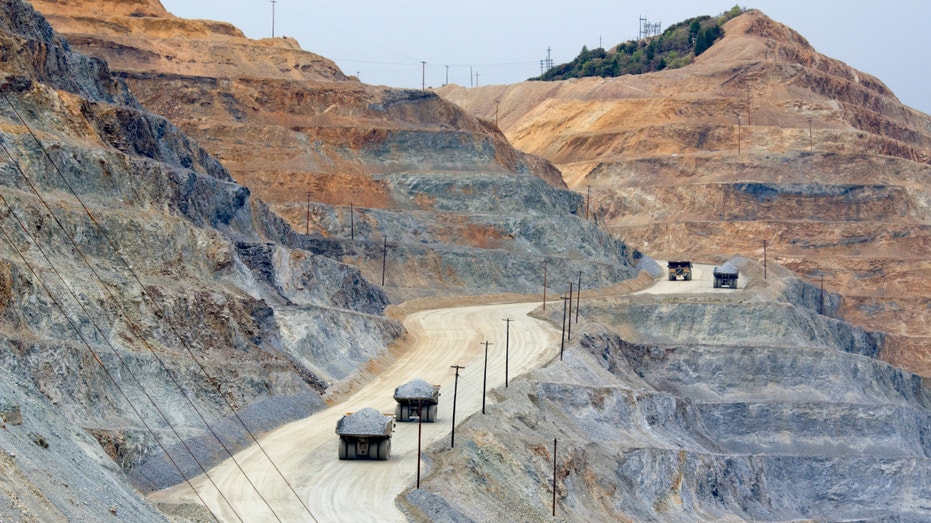
The entire operation is conducted internally. After mining and crushing, the ore is transported via a five-mile-long conveyor belt to the concentrator, where it is processed into a sludge and sent to the smelter. The resultant product is a 700-pound copper slab that undergoes further treatment to yield two 300-pound copper plates at 99.99% purity.
GET Finance Newso BUSINESS ON THE GO BY CLICKING HERE
“This purity level represents the highest quality copper available in the U.S.,” Foster remarked. “When compared to the emissions from overseas smelters, our facility aligns with some of the strictest environmental standards globally. We take pride in that fact.”
Trump has also indicated a potential 25% tariff on imported copper, which currently accounts for 47% of U.S. copper consumption. While such a measure could benefit domestic mines, it presents complexities for companies like Rio Tinto that operate internationally.
“We are actively collaborating with the administration to address these challenges. The effectiveness of tariffs depends largely on their structure,” Walker explained. “If they are designed correctly, they could greatly benefit domestic supply efforts.”

